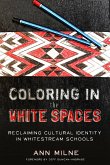A Promising Reality: Reflections on Race, Gender, and Culture in Cuba is a compilation of the reflections of a group of chief diversity officers, faculty, and educators from the United States about Cuba. As part of the National Association of Diversity Officers in Higher Education delegation to Cuba in July, 2015, A Promising Reality represents a collection of voices, experiences, and perspectives about issues of race, gender, cultural identity, and the African experience in Cuba. Key themes explored include Cuban culture, the Cuban Revolution, politics, economics, education, equity, and social change. Utilizing narrative inquiry, some of the reflections are comparative with the United States, and some reflections focus exclusively on Cuba. The book takes readers on a journey of thought-provoking stories that reflect the excitement, uncertainty, complexity, and promising possibilities on the cusp of changing diplomatic, political, economic, and social relationships between the United States and Cuba. A Promising Reality seeks to broaden the perspectives of its readers regarding US-Cuban relations. This book is ideal for courses on international relations, international studies, international affairs, comparative cultures, political science, education, politics, sociology, history, race, gender, and social justice. It is a must-read for anyone traveling to Cuba as part of study-abroad, professional development, or personal adventure.
Dieser Download kann aus rechtlichen Gründen nur mit Rechnungsadresse in A, D ausgeliefert werden.
"This book summarizes the reflections of a group of university chief diversity officers and other educators on current issues in Cuba. Issues of race, gender, cultural identity, and the African experience in Cuba are explored and discussed from a number of interesting perspectives. Given the rapidly changing economic, political, and social relationships between the United States and Cuba, this book is highly recommended for college and university courses on international studies, international affairs, political science and sociology. Faculty and administrators seeking to develop educational programs with Cuba, or partnerships with Cuban universities or organizations, will find this book to be a valuable resource."-Julie Furst-Bowe, Former Chancellor, Southern Illinois University-Edwardsville; Vice President of Instruction, Chippewa Valley Technical College









